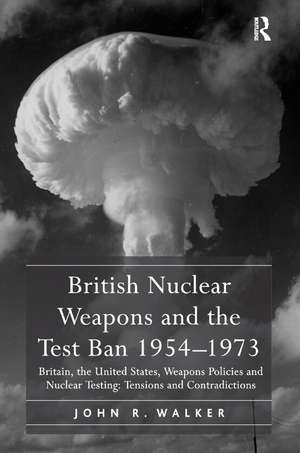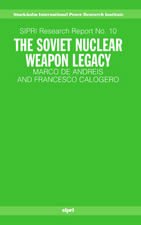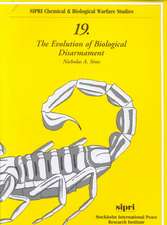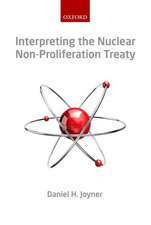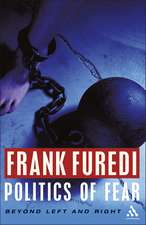British Nuclear Weapons and the Test Ban 1954-1973: Britain, the United States, Weapons Policies and Nuclear Testing: Tensions and Contradictions
Autor John R. Walkeren Limba Engleză Paperback – 10 iun 2019
| Toate formatele și edițiile | Preț | Express |
|---|---|---|
| Paperback (1) | 436.14 lei 43-57 zile | |
| Taylor & Francis – 10 iun 2019 | 436.14 lei 43-57 zile | |
| Hardback (1) | 1054.71 lei 43-57 zile | |
| Taylor & Francis – 24 noi 2010 | 1054.71 lei 43-57 zile |
Preț: 436.14 lei
Nou
Puncte Express: 654
Preț estimativ în valută:
83.48€ • 86.03$ • 70.47£
83.48€ • 86.03$ • 70.47£
Carte tipărită la comandă
Livrare economică 03-17 martie
Preluare comenzi: 021 569.72.76
Specificații
ISBN-13: 9781138383975
ISBN-10: 113838397X
Pagini: 408
Dimensiuni: 156 x 234 x 21 mm
Greutate: 0.45 kg
Ediția:1
Editura: Taylor & Francis
Colecția Routledge
Locul publicării:Oxford, United Kingdom
ISBN-10: 113838397X
Pagini: 408
Dimensiuni: 156 x 234 x 21 mm
Greutate: 0.45 kg
Ediția:1
Editura: Taylor & Francis
Colecția Routledge
Locul publicării:Oxford, United Kingdom
Cuprins
Contents: Introduction; Chronology; Early pressures: 1954-1958; 1958: a decisive year; The testing moratorium and its constraints on UK weapons: 1958-1963; Diplomatic pressures and the testing moratorium: 1958-1961; Test-Ban Treaty verification and the role of seismology: UK efforts 1958-1965 The end of the testing moratorium 1961: UK responses; The UK and the Partial Test-Ban Treaty (PTBT): 1963; UK testing and future plans 1963-1965; UK CTBT policy 1965-1973; A static UK nuclear weapon development programme 1966-1973; Conclusions; Bibliography; Index.
Notă biografică
Dr John Walker works in the Arms Control and Disarmament Research Unit, Foreign and Commonwealth Office, UK.
Recenzii
'Nuclear-weapon proliferation and nuclear disarmament are clearly important topical issues and will remain so for some time. British Nuclear Weapons and the Test Ban 1954-1973 is an extremely valuable resource for those interested in them. Politicians, students of international politics and international relations, journalists and interested members of the public will greatly benefit from reading it.' Medicine, Conflict and Survival 'In detailing British policy towards the test ban, and in mapping its potential and actual consequences as they were felt in Whitehall, Walker’s book sheds light on just how important this issue was for the easily-anxious in Britain’s nuclear world.' Journal of Transatlantic Studies
Descriere
Focusing on a key twenty year period, this study explores Britain's role in efforts to bring about a nuclear test ban treaty between 1954 and 1973. Taking a broadly chronological approach, it examines the nature of defence planning, Anglo-American relationships, the efficacy of British diplomacy and UK contributions to arms control and disarmament. The appraisal of the relationship between the requirements and developments of the UK nuclear weapons programme against the countervailing international and domestic pressures for a test ban treaty will be of interest to anyone studying post-war British defence and foreign policy, history of science, arms control, disarmament and non-proliferation and international relations, or who is looking for background information on current events involving nuclear proliferation and disarmament.
